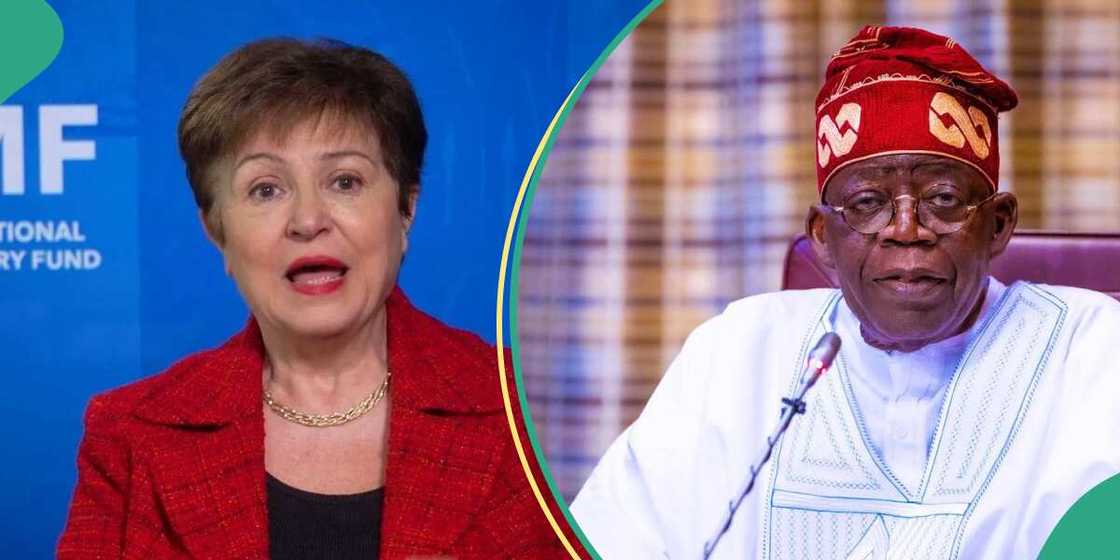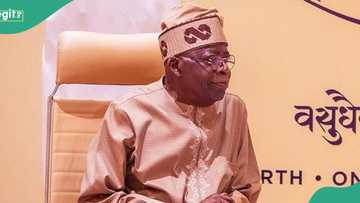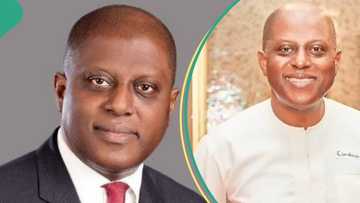Amid Economic Hardship, IMF Tells FG to Collect More Taxes, Raise Interest
- IMF advised Nigeria to collect more taxes from citizens to fund the national budget and settle public debts
- It said this would complement Nigeria’s strategy of eliminating fuel subsidies and the foreign exchange unification
- It noted that debt repayment still consumes more than 90% of government revenue despite subsidy removal
PAY ATTENTION: #StartupSouth Awards 2023 Nominated Legit.ng in the category Best Startup Coverage! Your support matters - click to VOTE for Legit.ng for free!
The International Monetary Fund stated on Friday, October 13, that the Federal Government must collect more taxes to support the national budget and settle public debts.
It stated that this would improve Nigeria’s strategy of eliminating fuel subsidies and the foreign exchange unification project, resulting in economic growth and stability.

Source: UGC
Abebe Selassie, director of the IMF’s Africa Department, disclosed the situation during a press conference on the Sub-Saharan Africa Regional Economic Outlook at the present World Bank Group/International Monetary Fund Meeting in Marrakech.

Read also
"You've revenue problem": Despite N87 trillion debt stock, IMF says Nigeria not in debt distress
Nigeria’s challenging economic situation
He spoke against the backdrop of Nigeria’s challenging economic situation as a result of President Bola Tinubu’s abolition of the gasoline subsidy and unification of the foreign exchange after taking office in late May.
More Nigerians have suffered anguish and unspeakable hardships due to the deregulation of the downstream oil sector, which has increased gasoline prices from approximately N185 to about N600 per litre.
In addition, the government’s policies intended to harmonize the official and black market exchange rates of the naira, which were made public in early June, have made the sudden increase in the cost of goods and services that followed the rise in the price of petrol at the pump worse.
Although the Federal Government initially saved money by eliminating fuel subsidies, over 90% of government revenue still goes towards paying off debt, leaving it with a smaller amount to fund significant economic growth and development initiatives.

Read also
Cardoso's CBN to withdraw financial support for farmers, others after disbursing N9.7trn in three years
However, the IMF stated that Nigerian officials urgently need to add a set of measures to the withdrawal of fuel subsidies to lessen the economic difficulties the nation is currently facing.
Selassie said:
“The exchange rate reforms that the government did were very, very welcome, trying to unify the rate, similarly the fuel subsidy. But that will not help and will not stick unless you also are tightening monetary policy; unless you’re also doing something to mobilize more tax revenues. So, a holistic package of reforms is what’s needed.
According to Selassie, the Central Bank of Nigeria and the Ministry of Finance have new heads, and more time must be given to them to take action.
Notably, the IMF stated that it is hesitant to grant debt cancellation to Nigeria and other African countries.
“No Smart Strategies”: Why Nigerians Shun eNaira, Opt For Mobile Money, IMF Tells CBN
The IMF has counselled the CBN on what to do to boost eNaira adoption in Nigeria, Legit.ng reported.
The IMF revealed in a recent report that the adoption of the e-Naira in the country could be much higher.
A recent report by the IMF has assessed the adoption of Nigeria’s digital currency, the e-Naira, as disappointingly low.
Source: Legit.ng


